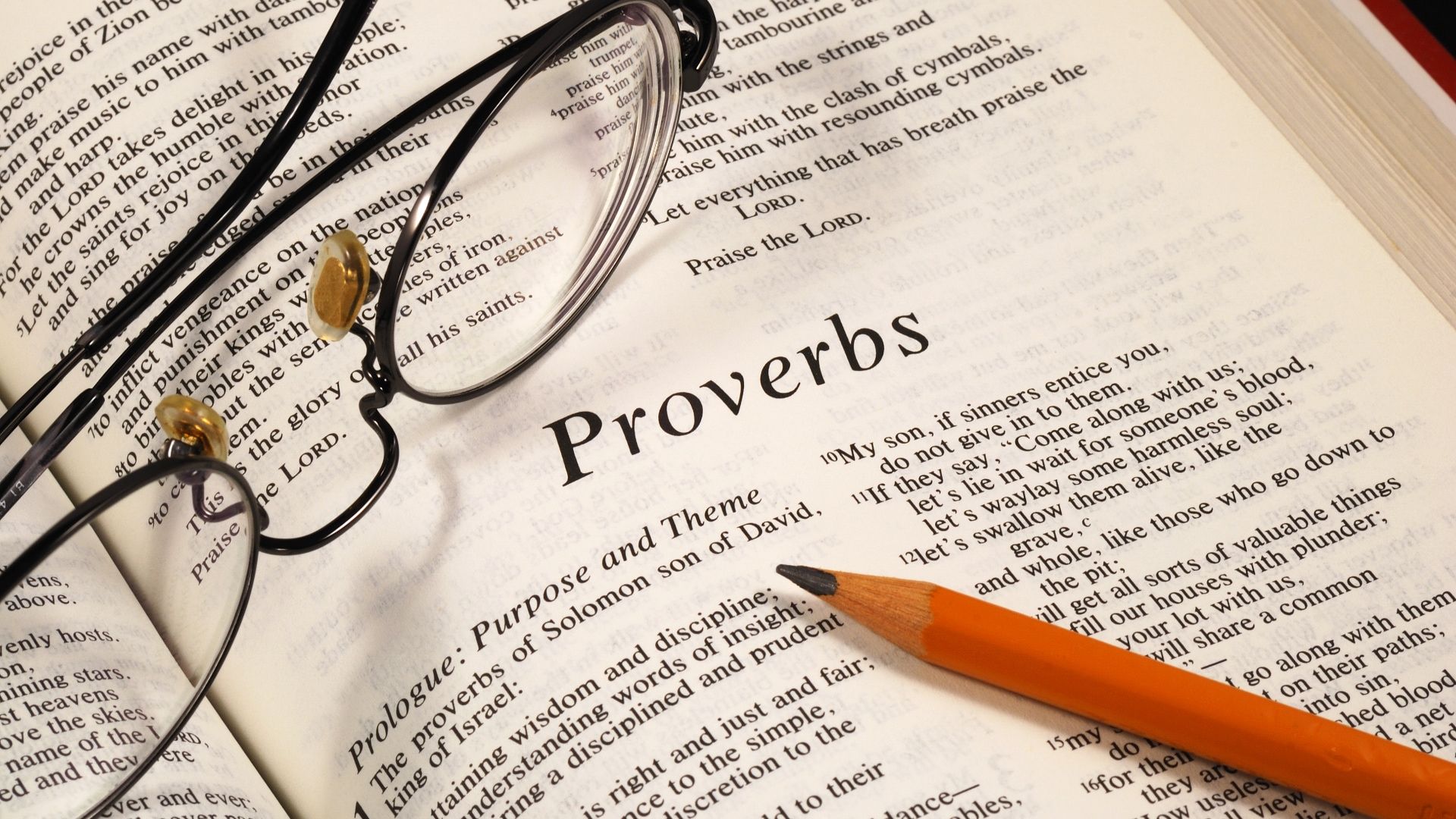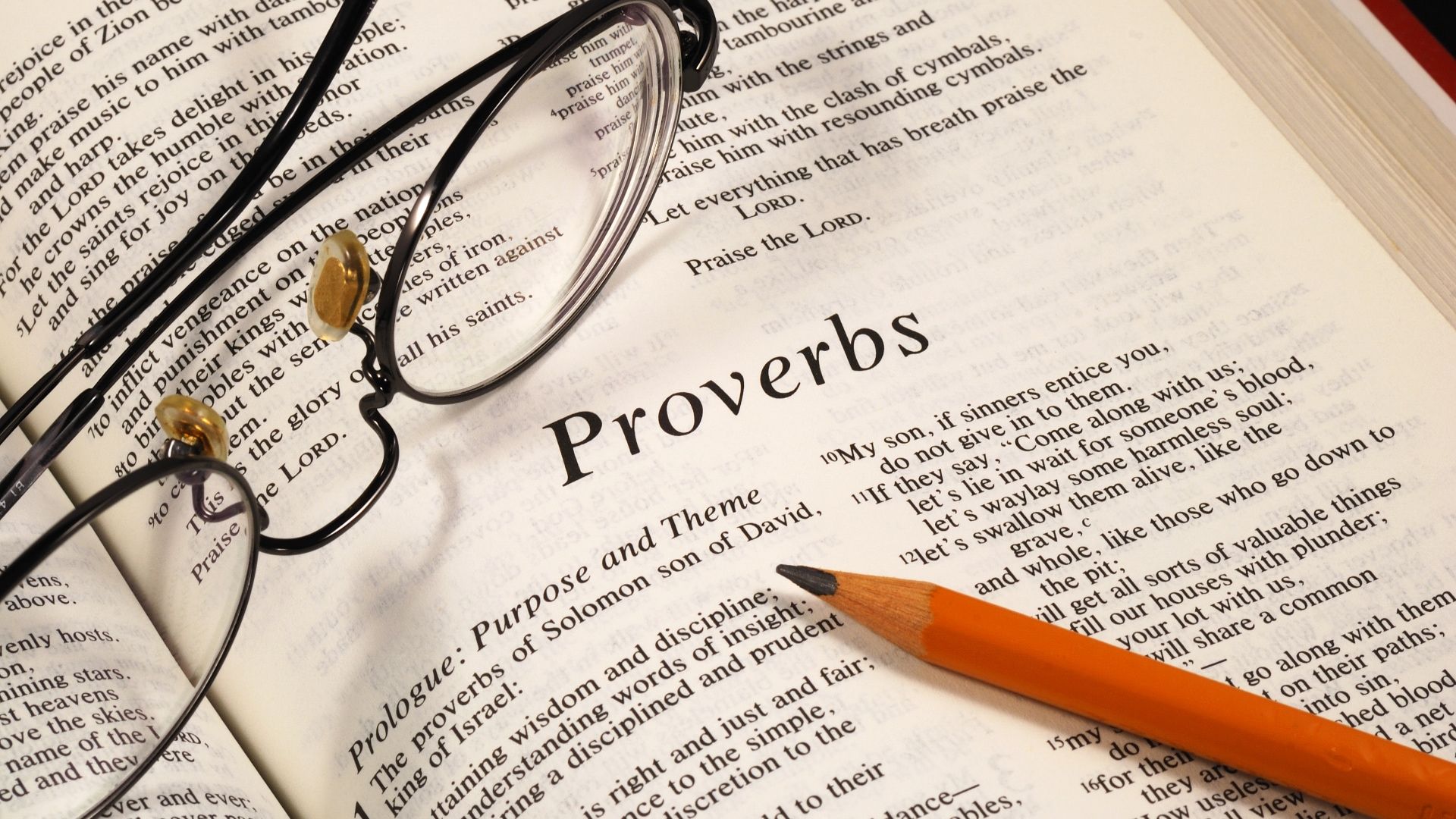Friendship (Proverbs)

As we end our series on the book of Proverbs, we are focusing on the theme of our relationships with others. Jon McMurray spoke about anger a few weeks ago. Today, we will continue with the same theme and discuss friendship.
One of the reasons I want to talk about friendship is because we are so conflicted about it. In his classic book The Four Loves, C.S. Lewis pointed out that if you want to talk about erotic love, you'll have a ready audience. Books and movies come out all the time about love. If you read the newspaper, you'll get gossip about which celebrity's in love with which other celebrity. But Lewis said, "Very few modern people think Friendship a love of comparable value or even a love at all." Nobody picks up a tabloid to read who's friends with whom. The modern world, Lewis says, ignores it. We admit that every person needs a few friends, but overall "it is something quite marginal; not a main course in life's banquet; a diversion; something that fills up the chinks of one's time."
So I want to look at what Proverbs has to say about friendship today, specifically looking at three things. First, the types of friendship. Second, the marks of true friendship. Finally, where we can find true friendship.
First, what are the types of friendship?
If you'll look carefully throughout Proverbs, you'll discover that there's a word that appears repeatedly. It's neighbor. For instance:
Seldom set foot in your neighbor's house— too much of you, and you will be hated. (Proverbs 25:17)
Like a maniac shooting
flaming arrows of death
is one who deceives a neighbor
and says, "I was only joking!"
(Proverbs 26:18-19)
If anyone loudly blesses a neighbor early in the morning, it will be taken as a curse. (Proverbs 27:14)
Actually, if you wanted to, you could read or search through the whole book and pull out all the times that Proverbs mentions neighbors.
Then there are a number of other proverbs that mention friends. For instance:
The righteous choose their friends carefully,
but the way of the wicked leads them astray.
(Proverbs 12:26)
One who has unreliable friends soon comes to ruin,
but there is a friend who sticks closer than a brother.
(Proverbs 18:24)
What's interesting is that the Hebrew actually uses the same word for neighbor and friend, and it comes from a verb that means to associate with.
But if you read carefully, you'll notice that there's a difference in the contexts. In one case you have people who are physically close to you, but with whom there is little attachment. That's why Proverbs says things like don't speak too loudly to your neighbor in the morning; don't go to their house too often; think very carefully before you take your neighbor to court. (Today you could say, think carefully before you call the building inspector on your neighbor or call the police when they're having a loud party.)
Proverbs actually has a lot to say about this. It's incredibly important how we relate to people who aren't especially close to us emotionally, but are part of our lives just because their lives happen to intersect with ours. I was thinking of this recently as I've been reading about the life of Martyn Lloyd-Jones, a famous pastor who lived in the last century. One day he went somewhere to speak. As he was going in, he said to one of the staff, "I remember you." They had only seen each other ten times, and this person was not somebody important, but Lloyd-Jones remembered him. It meant so much to that individual that he came in to hear all the sessions that Lloyd-Jones gave at that conference. How we treat those who are close physically, but not emotionally, is a very important issue.
Proverbs is very useful, by the way, in identifying some of the social faux pas that get in the way of relationships. I won't list all of them here, but if you want to improve your people skills, it wouldn't hurt to go through Proverbs and pick out everything that it says about social irritants to avoid so that we can have good relationships with others.
So there are neighbors, people who are physically close, but not emotionally. But then if you look carefully there is a whole other level of relationship that is normally translated friendship. Proverbs says that these are people that we choose, people who love at all times, and who tell us the truth about ourselves out of love. We need these.
The place to begin in Proverbs, then, is to be able to tell the difference between a neighbor and a friend, and to make sure that we actually do have friends. To quote C.S. Lewis again, there are people we hang out with, cooperate with, and have fun with just because we're gregarious. It's what we enjoy, he says, in barrooms, common rooms, mess rooms, and golf clubs. It's what he calls companionship. The problem, he says, is:
Many people when they speak of their "friends" mean only their companions. But it is not Friendship in the sense that I give to the word. By this I do not at all intend to disparage the merely Clubabble relation. We do not disparage silver by distinguishing it from gold.
So we need to ask, then, what is real friendship?
In other words, what separates companionship from true friendship? What are the marks of real friendship?
As you look at Proverbs, you see that it offers two qualities of true friendship that are incredibly rare. One of them is constancy, and the other one is candor.
First, constancy. Proverbs says that when it comes to true friendship, that the other person is committed to sticking it out with you and will not abandon you when things get tough.
Proverbs 17:17 says:
A friend loves at all times,
and a brother is born for a time of adversity.
And then there's Proverbs 18:24 says:
One who has unreliable friends soon comes to ruin,
but there is a friend who sticks closer than a brother.
A friend, Proverbs says, never lets you down. You've all heard the term "fair weather friend." According to Proverbs, they're not true friends. A true friend recognizes the inherent worth and dignity of the other and desires to be faithful at all times, even when it costs.
You see this type of friendship in The Lord of the Rings. Actually, friendship is one of its major themes. In Fellowship of the Ring, Sam says to Frodo, "I made a promise, Mr Frodo. A promise. 'Don't you leave him Samwise Gamgee.' And I don't mean to. I don't mean to." That's what Proverbs is talking about.
If you have run-of-the-mill friends who abandon you when things get tough, Proverbs says, you'll come to ruin. Some are buddies but won't stick with you when you get into trouble. In contrast, there is that type of friend who is utterly committed to you, more committed to you than even your own family. That is the type of friend that you need. You can't have many, but even one or two will do. Constancy, a stick-with-you no matter what commitment, is a mark of true friendship.
The second mark of friendship according to Proverbs is candor. True friends are constant, but your friendship with them is also marked with candor.
For instance, Proverbs 27:6 says:
Wounds from a friend can be trusted,
but an enemy multiplies kisses.
A few verses down in Proverbs 27:9:
Perfume and incense bring joy to the heart,
and the pleasantness of a friend
springs from their heartfelt advice.
Proverbs 28:23 says:
Whoever rebukes a person will in the end gain favor
rather than one who has a flattering tongue.
This is strange when you first read it. According to Proverbs, there is such a thing as friendly wounds, and there is also such a thing as wounding kisses. Sometimes when people kiss you and flatter you, it's not because they actually like you. Sometimes it's a sign that they don't love you. But when you know that somebody truly loves you, when they speak plainly to you, you can be confident that those words are for your good, even if they are hard to hear at the time. It's more than a mutual admiration society. They don't always admire you; they love you enough to tell you what you need to hear, even if you don't want to hear it.
We've all reached that point in our relationships in which we ask, "I wonder if I should tell them the truth?" This happens with small things, like the piece of food stuck in someone else's teeth. Have you ever sat there debating whether you should tell someone? But it also applies to bigger issues. A true friend is so committed to you that they will open up – offer you "heartfelt advice" as Proverbs 27:9 says. They will also tell you the things that you may find hard to hear. They love you enough to tell you the truth, even if it hurts.
The result is what Proverbs says in chapter 27:17:
As iron sharpens iron,
so one person sharpens another.
What this says is that when we find true friendship, it improves us. It makes us better than we would have been without that friendship. Sharpening isn't always a pleasant process. It involves some scraping and, in the case of relationships, some confrontation. But the end result is that both friends are better than they would have been before.
This is what sets true friendship apart from companionship. Companions have fun, but they don't really help each other. True friendship, however, is characterized by constancy and candor, and it actually makes us better people than we were before.
Well, that leaves us one last question that we need to answer.
Where in the world can we find this type of friendship?
I think you'll agree that the type of friendship we're describing is rare. As I reflected on myself, I realized that I've got tons of companions, but I've had very few of this type of friend. Yet looking at this, I realize how much we need even one friendship that is characterized by these qualities.
One of the answers to how to get this type of friend is surely to look for opportunities to be this type of friend. It may be that as you show this type of friendship to others, that you will discover one or two people who will become this type of friend for you.
But C.S. Lewis points us to something else we can do if we would like to have true friendships. After giving an example of true friendship from John Bunyan's Pilgrim's Progress, Lewis writes:
For a Christian, there are, strictly speaking, no chances. A secret Master of Ceremonies has been at work. Christ, who said to the disciples, 'Ye have not chosen me, but I have chosen you,' can truly say to every group of Christian friends, 'You have not chosen one another but I have chosen you for one another.' The Friendship is not a reward for our discrimination and good taste in finding one another out. It is the instrument by which God reveals to each the beauties of all the others…At this feast it is He who has spread the board and it is He who has chosen the guests.
The very qualities of friendship – constancy and candor – are the qualities that you find applied to the church in the New Testament. When Jesus brings us together to the table, we are called in a very real sense to be true friends to each other: to admonish one another, to encourage one another, to confess our sins to one another. God has chosen the guests, and we have the privilege of building genuine friendship with the other guests he has invited.
Jesus said:
Greater love has no one than this: to lay down one's life for one's friends. You are my friends if you do what I command. I no longer call you servants, because servants do not know their master's business. Instead, I have called you friends, for everything that I learned from my Father I have made known to you… This is my command: Love each other. (John 15:13-17)
If you have friends, you know how much they're worth. But you also know that they will from time to time let you down. But when you see Jesus, you realize that he sees you inside out. He knows you, and he isn't afraid to tell you the truth about yourself. Yet he is completely committed to you. He's so committed that when we were at our worst, he lay down his life for us. When you see Jesus, you have seen ultimate friendship. And then we are invited to love each other with the same candor, constancy, and love.
Let's pray.
Father, thank you that you exist as a relational being enjoying perfect fellowship within the Trinity from all eternity. Thank you for making us relational beings after your image. Thank you for Jesus, who not only is completely candid with us, but who also gave up his life for us. As we see him may we see that there is no greater love than when he offered up his life for us on the cross.
You have invited us to your feast, and you have chosen the guests. May we learn to love each other, to be constant and candid in our relationships. May we learn real friendship from the one who called us friends. In Jesus' name we pray. Amen.





